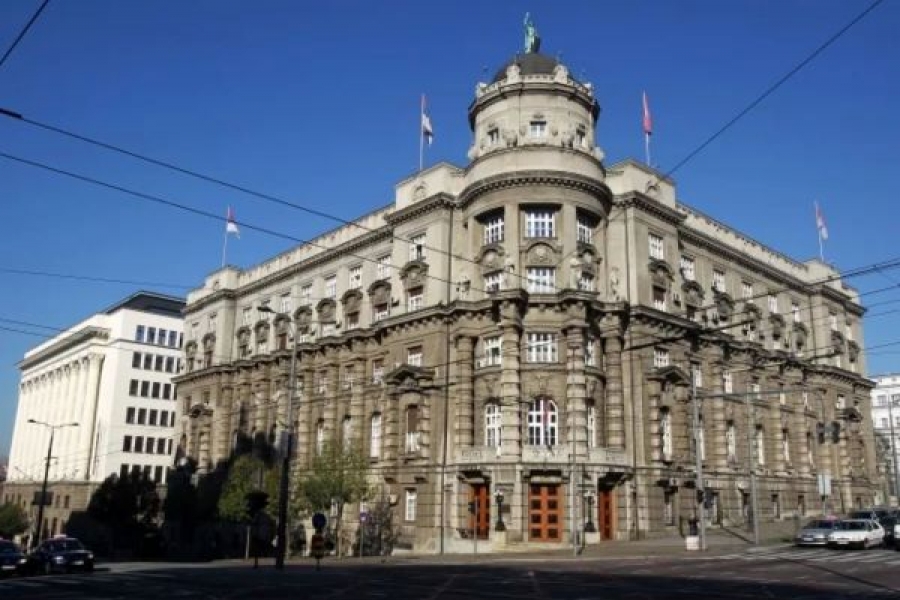This is not the first time criticisms from the ruling structures have been directed towards the non-governmental sector, with accusations that civil society representatives are foreign mercenaries and do not represent the interests of Serbia and its citizens. Such attacks are orchestrated, coming periodically in waves, with the aim of further eroding citizens trust in non-governmental organizations and discrediting their members. The narrative traces its roots back to the 1990s and targets similar subjects – for example, the founder of the Open Society Foundation, George Soros, as a symbol of all the negative things coming from the West. The actors spreading these messages change over time – in the 1990s, it was Vojislav Seselj, and today certain officials are responsible for this kind of rhetoric. However, what the dedicated critics of the foreign-funded non-governmental sector forget to mention is that state institutions and state projects are often financed from abroad as well, and the current government, especially the President of Serbia and, until recently, the Serbian Progressive Party (SNS), Aleksandar Vucic, collaborate with the funders of projects that civil society organizations in Serbia work on, and one of them is Alexander Soros, who currently leads the "notorious" Open Society Foundations. Bojana Selakovic, the Coordinator of the National Convention on the European Union in Serbia (NCEU), tells Demostat that messages like Djukanovics are an attempt further to erode citizens trust in the civil sector and that they can be extremely dangerous, even to the safety of NGOs members. She also notes that Serbian society should finally decide whether it is heading toward Europe, and those leading Serbia on the European path should do so consistently and clearly, without sending paradoxical messages like those about the work of NGOs.

This is not the first time criticisms from the ruling structures have been directed towards the non-governmental sector, with accusations that civil society representatives are foreign mercenaries and do not represent the interests of Serbia and its citizens. Such attacks are orchestrated, coming periodically in waves, with the aim of further eroding citizens trust in non-governmental organizations and discrediting their members. The narrative traces its roots back to the 1990s and targets similar subjects – for example, the founder of the Open Society Foundation, George Soros, as a symbol of all the negative things coming from the West. The actors spreading these messages change over time – in the 1990s, it was Vojislav Seselj, and today certain officials are responsible for this kind of rhetoric. However, what the dedicated critics of the foreign-funded non-governmental sector forget to mention is that state institutions and state projects are often financed from abroad as well, and the current government, especially the President of Serbia and, until recently, the Serbian Progressive Party (SNS), Aleksandar Vucic, collaborate with the funders of projects that civil society organizations in Serbia work on, and one of them is Alexander Soros, who currently leads the "notorious" Open Society Foundations. Bojana Selakovic, the Coordinator of the National Convention on the European Union in Serbia (NCEU), tells Demostat that messages like Djukanovics are an attempt further to erode citizens trust in the civil sector and that they can be extremely dangerous, even to the safety of NGOs members. She also notes that Serbian society should finally decide whether it is heading toward Europe, and those leading Serbia on the European path should do so consistently and clearly, without sending paradoxical messages like those about the work of NGOs.

Vladimir Djukanovic, a member of the Serbian Progressive Party (SNS) and the president of the parliamentary Committee on Judiciary, has been attacking the civil sector and the funding of non-governmental organizations (NGOs) from abroad in recent days, calling for the expulsion of NGOs operating under the patronage of George Soros from the country.
"The state urgently needs to enact a law that regulates the work of the NGO sector and to do everything to prevent them from receiving money for their activities from abroad. Especially, it should make every effort to expel from the country all NGOs under Soross patronage," Djukanovi? wrote on the social media platform X (Twitter).

Source: X (former Twitter)
Its not the first time officials from the ruling Serbian Progressive Party (SNS) have criticized the non-governmental sector, accusing them of being financed from abroad and not representing the interests of Serbia and its citizens.
This is particularly dangerous because there has been a longstanding negative attitude towards non-governmental organizations (NGOs) in some Serbian public, and citizens are not fully informed about how the civil sector represents their interests.
Such messages attempt to undermine further and diminish the public perception of NGOs and the trust in the civil sector. They can be extremely dangerous as they may lead to attacks and jeopardize the safety of individuals within the civil sector, tells to Demostat Bojana Selakovic, the Coordinator of the National Convention on the European Union in Serbia (NCEU).
She says that Djukanovics statement is just one of many attempts to discredit the work of the civil sector, and its not the first time such messages have come from high-ranking government officials and the ruling party, including him.

Source: LinkedIn/@BojanaSelakovic
"This is a narrative that has persisted for years. However, the problem comes from people who boast about being Europeans and supporting Serbias European path, yet they make statements like these. Its a kind of paradox; we should definitively decide what we want. Those leading Serbias politics and the European path should be consistent and clear about it," Selakovic says.
She mentions that such narratives have become increasingly common in recent years, despite Prime Minister Ana Brnabic stating in December during a plenary session of the National Convention that no government representatives use such messages.
Such statements, Selakovic adds, are highly damaging as they not only jeopardize the reputation of non-governmental organizations and the civil sector but can also lead to unnecessary public outrage, attacks, and threats to the safety of individuals within the civil sector.
The narrative that Soros symbolizes everything negative coming to Serbia from the West has its roots in the 1990s, Selakovic notes. She reminds us that its well-known that the current government led by Aleksandar Vucic maintains good relations with the Soros Foundation and Alexander Soros.
Vucic has met with Alexander Soros multiple times and has been present at meetings within the "Open Balkans" initiative, sharing photos from these events on his social media profiles.

Source: FB/@vucicaleksandar
Soros was present at a meeting with Vucic at the Presidency of Serbia, during which he expressed gratitude to Vucic for the support his foundation receives in Serbia. Soros stated his readiness for the foundation to support reform processes and entrepreneurial development in the country.
According to official statements, during the meeting with Vucic, Soros encouraged Serbia to continue playing a constructive role in stability in the Western Balkans region. Discussions also touched on media reforms and the rule of law, with Vucic responding that Serbia is prepared for further societal reforms and attaining European standards.
Bojana Selakovic explains to Demostat that citizens have incomplete information, and a portion of the public isnt aware that both non-governmental organizations and state institutions, local government units, schools, and hospitals often receive funding from the same sources.
"Its the same money that comes from these programs – the state is financed through the concept of international development aid, and part of it goes through project financing of civil society organizations, which should work in synergy with state institutions toward the same goal," Selakovic clarifies.
She notes that criticizing civil society organizations creates conflicts in an already polarized society and can be dangerous. Citizens consuming such narratives through pro-government media can get an entirely different image of the work of NGOs.
When asked if the recent attack on NGOs was orchestrated, Selakovic mentions that such attacks come in waves when attention needs to be diverted from specific issues. They often coincide with other initiatives, such as the spread of hate graffiti, the expansion of murals with nationalist messages, or announcements of pressure on Serbia...
"This is no longer a coincidence. It comes in waves, as one link in that narrative," Selakovic says.
She also notes a systematic approach and states that its clear who among the government officials disseminates these kinds of messages.
"Ana Brnabic or Aleksandar Vucic wont say it; Vladimir Djukanovic will, as did Aleksandar Vulin before," she states.
Selakovic adds that damaging the reputation of non-governmental organizations is a minor issue because research indicates that citizens trust in their work is growing.
Recently, media outlets reported, based on an internal email they had access to, that the Open Society Foundation plans to withdraw from a significant portion of its activities in the European Union or completely halt them. The foundation intends to redirect its focus to other parts of the world, such as the Western Balkans and post-Soviet countries.
Citing a letter sent to Hungarian partners, the Hungarian service of Radio Free Europe reported that the leadership of the Open Society Foundation has "decided on a radical change of strategy." This decision was motivated by the fact that EU institutions and governments are already allocating significant funds to the same issues that the Open Society Foundation addresses. As a result, the foundation plans to shift its focus to the Balkans, post-Soviet countries, and other parts of the world.
In all societies there are issues that are rather being skipped. Certain...
The neoliberal path, started in 2001, has led to especially bad results in Serbi...
For centuries, the region was subsumed within the Ottoman and Hungarian Empires,...
"Serbia has returned to the systemic and anti-systemic position of the political...
In reality, Serbia is closer than ever to NATO. In the course of the last five y...